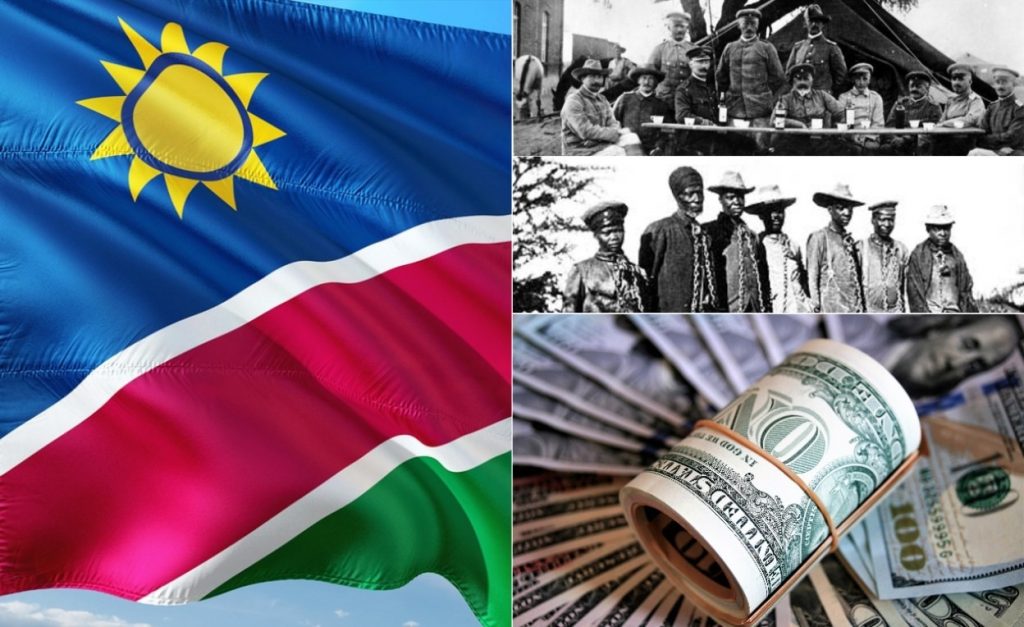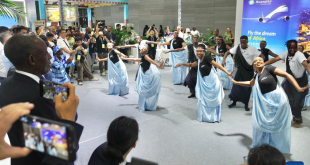
Pixabay, Bundesarchiv, Bild, Unknown author, Ullstein Bilderdienst, Berlin/Wikimedia Commons, Pixabay
Members of the opposition angrily marched to parliament to protest the recently concluded genocide agreement between Namibia and Germany. Clad in their political colours and traditional attire, hordes of protestors vented their frustration against the Swapo-led government’s acceptance of a genocide pact that has been heavily criticised by the affected communities. The National Assembly will discuss the joint declaration s i g n ed by t h e t w o governments over the colonialera mass massacre of the Ovaherero and Nama between 1904 and 1908.
Earlier this year, the two governments indicated that they have agreed that Germany will fund projects worth N$18 billion over 30 years. “What genocide are you talking about if you are not including communities who are outside in the diaspora? The 1.1 billion euro is a joke, taking into consideration the depreciation value over 30 years. So, you are saying it is fine for Germans to kill citizens, dispossess Namibians of their land, take movable and immovable property and after that they give them that amount over 30 years?” questioned Popular Democratic Movement leader McHenry Venaani.
He said that amount is equivalent to the budget allocation of the health ministry for one year and serves no purpose considering it will be stretched out in 30 years. “Let us stand firm and bring a deal that brings the ethos and values of these affected communities,” Venaani added.
“Over 50 000 Namibians in foreign lands don’t have any representatives on the genocide reparations.”
According to Venaani, that is why the likes of Mbeuta Ua-Ndjarakana, who are descendants and grew up in Botswana, oppose the suffering of their fellow people in that country.
He added that by being excluded, this generation of descendants is denied a chance to be part of the discussions around the genocide issue, which will benefit them.
Ua-Ndjarakana, the executive director of the ministry of information recently resigned from Swapo in protest of the way in which the governing party handled the genocide reparations issue.
Tens of thousands of Namibians, mainly the Nama and Ovaherero, were exterminated in what is called the first genocide of the 20th century. German troops massacred and displaced tens of thousands of Namibians in 1904-1908.
In 2015, the two countries started negotiating an agreement that would combine an official apology by Germany as well as reparations.
Nudo president Esther Muinjangue, who has been at the forefront of genocide discussions among the Ovaherero community, said they will not push for the ratification or the signing of the agreement.
“That document does not address our issues, it doesn’t speak about reparations and genocide. It is speaking about reconstruction. We are not asking for reconstruction, you committed genocide and for that you pay reparations. Simple as that,” she stated.
Muinjangue said there is no difference between the reconstruction and reconciliation fund and the special intuitive, which was not wanted and died a natural death.
“We will continue putting pressure on the German government. If they have so much money, they can continue and sign, but we will follow the German government to the end of the world,” she fumed.
Leader of the Landless People’s Movement, Bernadus Swartbooi said the fight for genocide is not an ethnic nor a tribal one but a struggle for social and economic justice that should prevail throughout the country.
“Yearly, for those of us who have been involved in the genocide struggle, I see us growing stronger and stronger. We are growing stronger nationally, on the continent, in Europe and USA and the issue of genocide is now well known,” stated Swartbooi.
President of the Rally for Democracy and Progress (RDP) Mike Kavekotora said the government has shown it does not have an emotional attachment to the genocide issue and don’t care about the outcome.
Pandemonium reigned when protestors, including opposition members of parliament, who had marched from Independence Avenue in Katutura to parliament, jumped the gate after police attempted to stop them from entering the parliamentary precinct.
The marchers eventually handed over their petition to deputy speaker Loide Kasingo.
The petition highlights the stance of the affected group, saying the agreement is flagrant and disregard their legitimate reparations and restitution demands.
“The so-called Reconstruction and Reconciliation agreement also deviates materially from the 2006 Resolution of the parliament of Namibia on Genocide of the Ovaherero and Nama communities,” reads the petition.
Allafrica.com
 Africa -China Review Africa -China Cooperation and Transformation
Africa -China Review Africa -China Cooperation and Transformation
